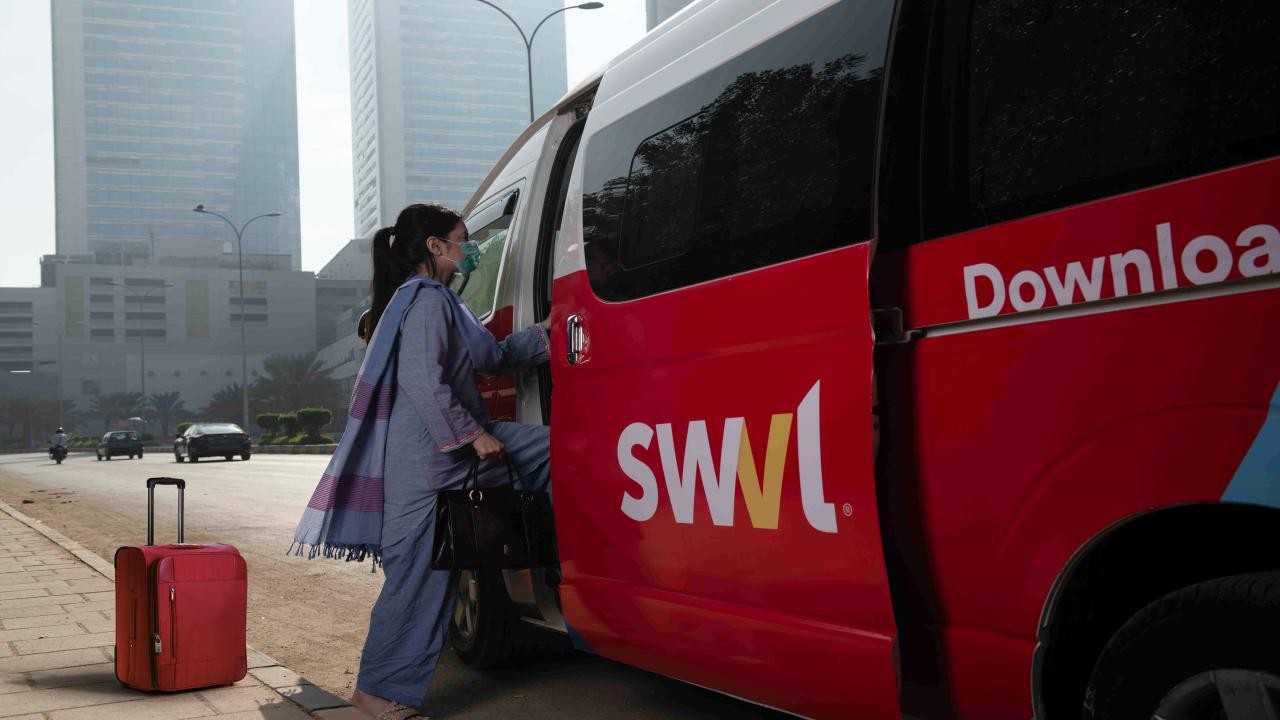News
Swvl Unveils “Right to Mobility” ESG Strategy and Launches New Sustainability Initiatives
August 29, 2021

Swvl Unveils “Right to Mobility” ESG Strategy and Launches New Sustainability Initiatives
Swvl’s ESG strategy addresses fundamental challenges with mobility solutions that have saved
~245m pounds of CO2 emission, reduced ~14.4m person-hour of congestion, and generated income for ~17,000 micro-entrepreneurs
Swvl improves the average walking distance to bus stops in developing markets to ~0.64km, and improves the average lateness across the transport network in developing markets by 50% compared to developed markets
Swvl introduces electric vehicles in Cairo, launches a new driver entrepreneurship program, and empowers female drivers with equal economic access and opportunities
DUBAI, UAE – September 29, 2021 – Swvl Inc. (“Swvl” or the “Company”), a Dubai-based provider of transformative mass transit and tech-enabled shared mobility solutions, today announced the publication of its first annual Environmental, Social and Governance (“ESG”) Report. The report highlights Swvl’s continued commitment to empowering individuals to realize greater social and economic equity, operating with sustainable business practices that protect the planet, supporting the societies in which it operates, advancing diversity, equity and inclusion, and creating value for all stakeholders.
Mostafa Kandil, Swvl Founder and CEO, said, “As a young and rapidly growing company, we have made tremendous progress towards our goal of removing barriers to seamless mobility for the masses, while making a significant positive environmental impact. Swvl is a mission-driven company focused on leveraging our platform for the betterment of society, and we take the role that we play in the lives of all Swvl stakeholders extremely seriously. We are delivering a more sustainable future for the world through our differentiated mass transit solutions, in turn creating value for all stakeholders.”
Swvl’s ESG strategy, “Right to Mobility” focuses on addressing safety, accessibility, societal and environmental challenges with differentiated mobility solutions:
- Humanizing the daily commute: In developing markets’ public transport systems, three in five women report experiencing sexual harassment. Rides across the public transport systems in these markets can be as much as ~23 minutes late, and the maximum walking distance to a bus stop is ~1.26km, with a worldwide average of 2 road-related fatalities per 100,000 inhabitants. Swvl provides a safe and reliable daily commuting experience to its student customer base, which is 51% female, while achieving a 99.98% accident-free rate. Swvl reduced the average walking distance to bus stops in developing markets to ~0.64km. Swvl also reduced the average lateness across the network in developing markets to ~5.3 min, representing a 50% improvement compared to developed markets.
- Enabling our societies: The annual cost of traffic in the U.S. is $88bn, while the cost of Cairo’s congestion as a percentage of Egypt’s GDP is ~4%. Swvl has successfully addressed these challenges by reducing ~14.4m person-hour of congestion and generating income for ~17,000 Swvl micro-entrepreneurs while actively providing female drivers with equal economic access and opportunities as their male counterparts.
- Caring for the planet: The transport sector is the second-highest contributor to CO2 emissions globally, with ~7.9bn pounds annually on a per capita basis. Swvl has saved
- New initiatives: Swvl is focused on sourcing female captains across its geographies and providing them with equal economic access and opportunities as their male With 51% of Swvl’s student customer base being female, Swvl is actively scaling its proportion of female captains to ensure social justice for riders and financial inclusion for captains. Swvl has also launched a new partnership program with banks facilitating captains’ access to financing to buy and run their own buses. Beginning with Egypt, Swvl has already attracted an initial group of female captains, and plans to introduce the program to other geographies during the fourth quarter of this year.
About Swvl
Swvl is a global tech startup based in Dubai that provides a semi-private alternative to public transportation for individuals who cannot afford or access private options. The Company builds parallel mass transit systems offering intercity, intracity, B2B and B2G transportation, and currently operates in 37 cities across 16 countries. Swvl’s tech-enabled offerings make mobility safer, more efficient and environmentally friendly, while still ensuring that it is accessible and affordable for everyone. Customers can book their rides on an easy-to-use app with varied payment options and access high-quality private buses and vans that operate according to fixed routes, stations, times, and prices. Swvl was co-founded by Mostafa Kandil, who began his career at Rocket Internet, where he launched the car sales platform Carmudi in the Philippines, which became the largest car classifieds company in the country in just six months. He then served as Rocket Internet’s Head of Operations. In 2016, Kandil joined Careem, a ride-sharing company and the first unicorn in the Middle East. He supported the platform’s expansion into multiple new markets. Careem is now a subsidiary of Uber, based in Dubai, with operations across 100 cities and 15 countries. For additional information about Swvl, please visit www.swvl.com.Media Contact
Daniel Yunger Kekst CNC kekst-swvl@kekstcnc.com 917-574-8582Investor Contact
Youssef Salem Swvl CFO Investor.relations@swvl.comStay Updated
Stay connected and receive new news in your inbox.
